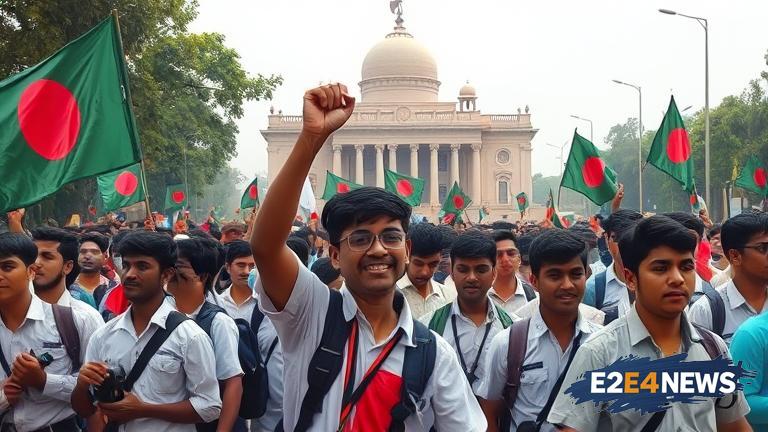The student protests in Bangladesh, which began in response to a road accident that killed two students, have sparked widespread outrage and criticism of the government’s handling of the situation. The protests, which started on July 29, 2018, were initially peaceful but turned violent after police used tear gas and batons to disperse the crowds. The government has been accused of using excessive force and suppressing freedom of speech, with many protesters and journalists being arrested and detained. The protests have also highlighted the country’s poor road safety record, with many blaming the government for failing to address the issue. The government has promised to take action to improve road safety, but many are skeptical about its commitment to reform. The protests have also sparked a wider debate about the state of democracy in Bangladesh, with many accusing the government of becoming increasingly authoritarian. The government has denied these allegations, but the protests have clearly struck a nerve. The international community has also weighed in on the issue, with many countries and organizations expressing concern about the government’s handling of the protests. The United States, in particular, has been critical of the government’s actions, with the State Department issuing a statement calling for restraint and respect for freedom of speech. The European Union has also expressed concern, with a spokesperson saying that the EU is ‘closely following’ the situation. The protests have also had an impact on the country’s economy, with many businesses and schools being forced to close due to the unrest. The government has estimated that the protests have cost the economy millions of dollars, but many believe that the true cost is much higher. Despite the challenges, the protests have also shown the power of social media and the importance of citizen journalism in holding those in power to account. Many protesters have used social media to document the protests and share their experiences, providing a unique perspective on the events unfolding on the ground. The government has also been criticized for its attempts to shut down social media and restrict access to information. The protests have also highlighted the importance of a free and independent press, with many journalists facing harassment and intimidation while trying to cover the protests. The government has denied any wrongdoing, but the evidence suggests that it has been trying to suppress the media and restrict freedom of speech. The protests are a major challenge for the government, which is already facing criticism for its human rights record. The government has promised to investigate the allegations of police brutality and to take action to address the concerns of the protesters. However, many are skeptical about its commitment to reform, and the protests are likely to continue until the government takes concrete action to address the issues. The international community will be watching the situation closely, and the government will be under pressure to respect the rights of its citizens and to take action to improve the country’s human rights record. The protests have also sparked a wider debate about the role of the government in society, with many arguing that it has a responsibility to protect its citizens and to ensure their safety and well-being. The government has a long way to go to regain the trust of its citizens, but the protests have shown that there is still a strong desire for democracy and human rights in Bangladesh. The country has a rich history of activism and protest, and the current protests are just the latest example of this. The government would do well to listen to the concerns of its citizens and to take action to address the issues that have sparked the protests. Only time will tell if the government is willing to take the necessary steps to reform and to respect the rights of its citizens.
